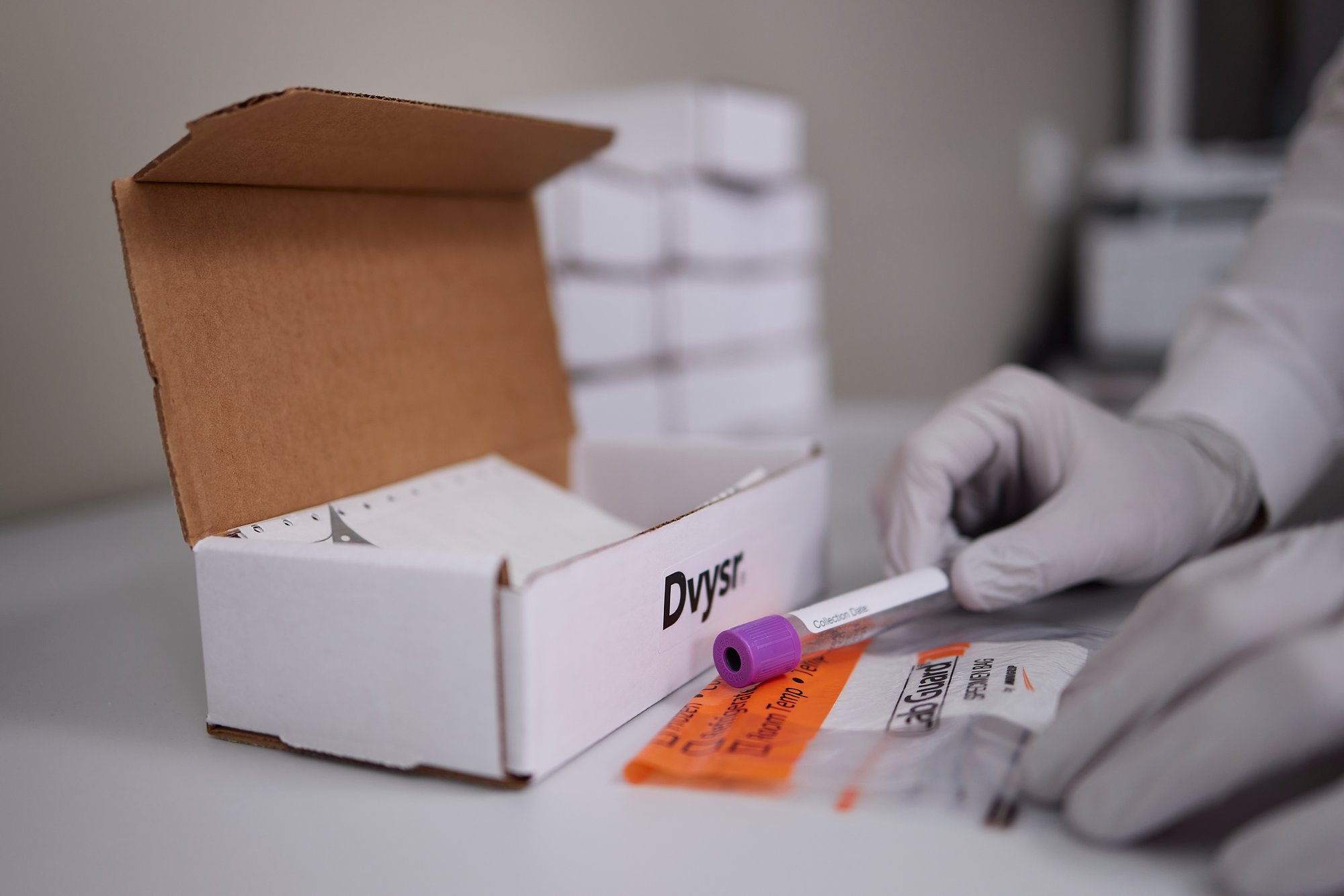PrenatalDetect RHD
Offer pregnant women targeted treatment with our fetal Rhesus D service

Benefits of test
Rh disease occurs when there is a mismatch in the genetic expression of the RHD gene between mother and fetus. People who lack RhD on their red blood cells are RhD-negative. Pregnant women can produce antibodies against RhD if they are exposed to RhD-positive red blood cells. This immune response destroys red blood cells produced by the fetus and results in anemia in the fetus, causing several complications and potential fatality.
To combat this, universal anti-D prophylaxis treatment has been implemented for Rh-negative mother. However, 40% of Rh-negative mothers are carrying an Rh-negative fetus and are exposed to unnecessary treatment with potential risks.1-2
Personalized treatment
We understand that a one-size-fits-all approach does not fit with modern, personalised treatment. We help you empower your patients on deciding the testing and treatment they want during pregnancy. Our modern approach helps avoid unnecessary universal treatment. Provide your patients with all the results they need to make informed decisions about their treatment.
Non-invasive
Sample collection from gestation week 10 using a single EDTA blood tube is all that is needed. No invasive fetal blood sampling is required, thereby avoiding exposing the fetus to risks associated with conventional invasive sampling.
Saves time
Patients can avoid multiple visits to the care provider for injections. We understand that many patients spend a lot of time and money to reach a care center for treatment. Anti-D prophylaxis can involve the administration of multiple doses for patients, requiring visits to a care center. With our test, physicians can evaluate whether this treatment is necessary or not, and therefore avoid unnecessary travel for their patients.
.jpg)
Enhanced customer satisfaction
Contact our team to sign up your patients for testing. Devyser Genomic Laboratories offers an optimal sample collection, testing and reporting experience. We are here to help at every stage, so get in touch.
Contact order@us.devyser.com to order
How to order our test
STEP 1
Place order for free sample collection kit at order@us.devyser.com
STEP 2
Download and complete the test requisition form.
STEP 3
Ship sample to Devyser Genomic Laboratories
STEP 4
Results sent to physician
STEP 5
Devyser Genomic Laboratories bills the patient directly

Frequently Asked Questions (FAQs)
What specimen is required for the test?


The test requires a blood sample in a single EDTA tube.
When can I expect results?


You will receive results within 10 days from us receiving the sample.
How does a patient pay?


Patients are billed directly by us following the sending of results.
Is your laboratory CLIA-certified?


Yes, our laboratory is CLIA-certified (CLIA number 11D2278668) and CAP-accreditation pending.
1 de Haas M, Finning K, Massey E, Roberts DJ. Anti-D prophylaxis: past, present and future. Transfus Med. 2014;24(1):1-7. doi:10.1111/tme.12099
2 O'Brien K, Siassakos D, Birchall J, Gompels M, Allford S, Bidgood K. Reaction to anti-D immunoglobulin - can we manage it?. Obstet Med. 2009;2(1):38-39. doi:10.1258/om.2008.080039Rutkowski K, Nasser SM. Management of hypersensitivity reactions to anti-D immunoglobulin preparations. Allergy. 2014;69(11):1560-1563. doi:10.1111/all.12494



